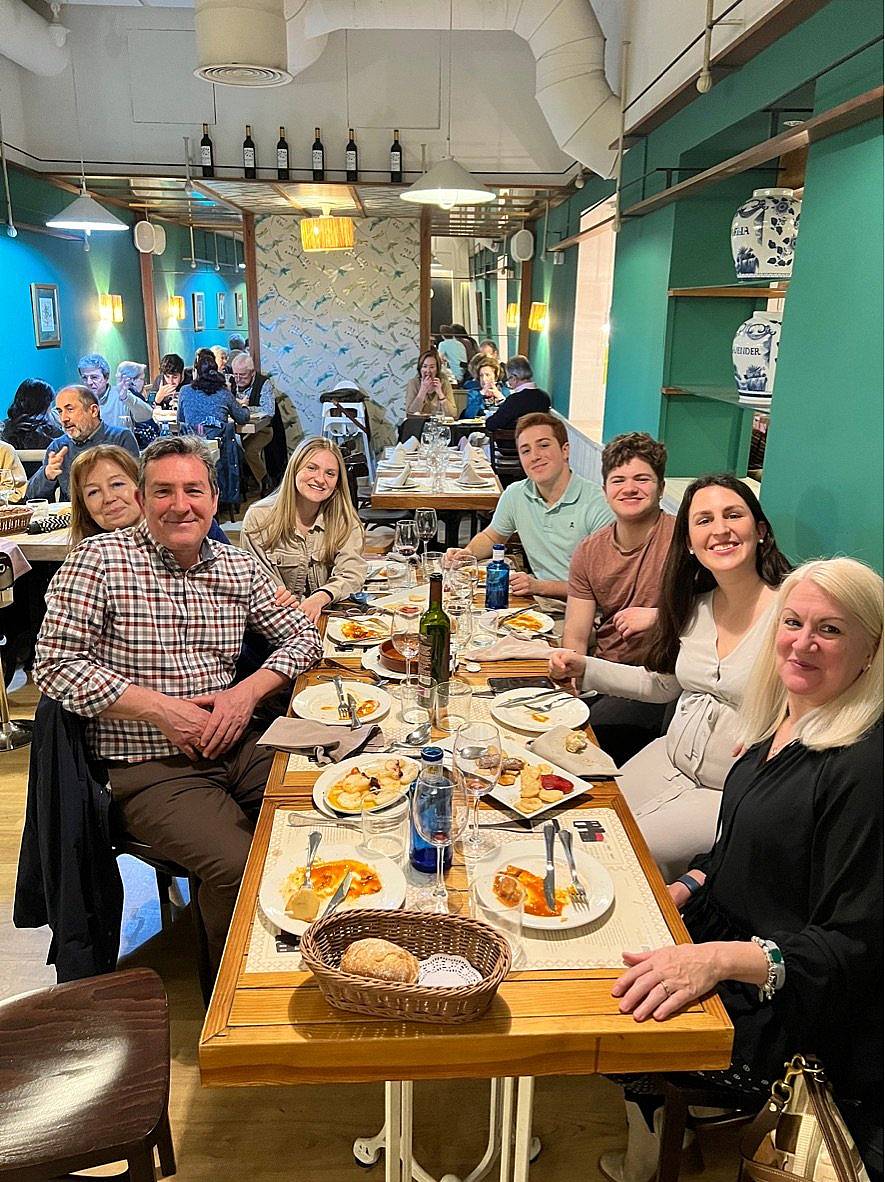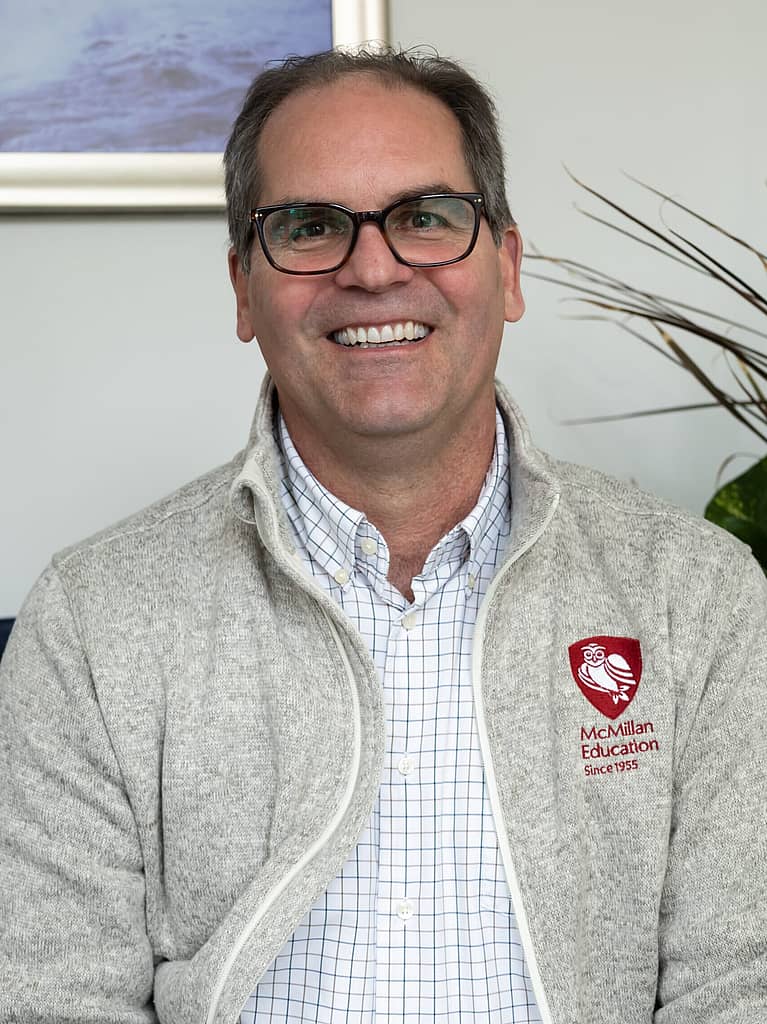Running, playing guitar, and speaking Spanish; these three activities are some of the most rewarding yet most frustrating parts of my life. The runner’s high, nailing the rhythm of a song, or speaking Spanish with friends in Madrid provides a sense of accomplishment and self-esteem. However, any athlete, musician, or language learner can confirm that perpetual improvement is impossible. For instance, terms like backsliding and plateauing define periods when I struggle on a run or my fingers keep messing up the chord transitions. I sometimes felt like I couldn’t speak English or Spanish when I lived in Madrid. Based upon linguist Larry Selinker’s theories, I view my progress as a continuum, where I am constantly progressing and regressing. Think two steps forward, one step back. But I always have one other possibility in the back of my mind – fossilization.
←Where I Am→
Where I Was < —————————- | ———————————-> Where I Want To Be
My Hungarian grandma, Mary Lopez (Keresturi), mostly spoke in the present tense. She would tell you about her day, “So he goes, and he says to me, ‘Mary, we are out of the beef, but we have the pork.‘” She settled into her immigrant neighborhood, married a Spaniard, and never needed to improve her English further. As a kid growing up in a small city surrounded by many “Grandmas and Grandpas” in the same situation, I never considered where they were in their 2nd language development. Years later, in a grad school class on language acquisition, I finally began to understand that my grandma’s English had fossilized. She was permanently stuck, and her language would never improve.
My grandma did not necessarily have time for a growth mindset, but my circumstances have been different than hers. Her daughter, Elaine Lopez (Lambert), made sure of it. My mom and dad never attended college, but both deeply believe in education. They pushed my siblings and me outside of our comfort zone even though they had no idea about grit or the growth mindset. During the rough times, they were there to support us unconditionally. Each time a new phase in my life began, I feared the unknown. I played football for the Massillon Tigers (Think Friday Night Lights) in high school, but that identity vanished when I set foot on the Davidson College campus. I was stuck on Who I Was and was resistant to seeking opportunities to become Who I Could Be. I was struggling, and linguists would call this stress, culture shock, or, more commonly, Homesickness. In terms of growth, it is paralyzing.
Studying in Spain my sophomore spring rechallenged me and ultimately changed the course of my life. I continued to learn Spanish in college and grad school; I’ve lived in Spain, traveled to Mexico, Guatemala, and Ecuador, and taught Spanish for 30 years. Expressing Who I Am Now in another language is always a hurdle. Being surrounded by others who do not know my story and being limited by my own language ability to form my identity is challenging. But the breakthroughs are amazing. I remember waiting to climb a pyramid in México when a young girl in Spanish asked her father what time it was. He replied, “Time to get a watch.” I laughed out loud, happy to know that the joke “travels” and at her reaction to her dad. He heard me laugh and asked, “¿Hablas español?” We spent the next couple of hours together touring the ruins and learning about each other’s lives. Those moments were like oxygen for my language learning.
Who I Am Now
Who I Was < ————————- | ———————————-> Who I Could Be
I would argue that, whether international or domestic, landing at a boarding school or college can present an identity crisis for students; new vocabulary, customs, and way of life. These places are their own “countries” in many ways. Often students experience what linguists Law and Eckes call the four stages of Acculturation: Honeymoon, Hostility, Humor, and Home. Having worked at four boarding schools, I have seen an ecstatic student who is so happy to be there (Honeymoon). Then, the hostility stage starts when the student realizes the differences between home and school (some call this Homesickness). Once through the Homesickness, the student begins to accept the school and reconcile between Who I Was at home and Who I Could Be at school (Humor). The final stage is when the student feels engaged and connected to the school (Home). The progression through these stages differs for each student and should be viewed as a continuum, as backsliding can occur. It is crucial to find the right fit for each student so they can move through these stages as easily as possible. Avoiding fossilization at any point on the continuum is the goal. At McMillan Education, I am invigorated to work with young people and their families to find that place where they can stretch and grow.
I do not want to fossilize in any part of my life. I will never win a 10K road race or play in a live band, but I will continue to run with friends and play music with my family. As for Madrid, my wife, son, and I recently visited our daughter, who was studying there. The four of us went to dinner with her Spanish family (mom, dad, son, and daughter). The eight of us sat around the table and spoke only in Spanish, with the Lamberts at different places on our continuums.


